
UNI52070
Road to a Bright Future
Home
Stories
Road to a Bright Future
Since UNICEF was established we have continuously accelerated, scaled-up, and innovated our life-saving work, for kids in every corner. Follow us on our journey from inception to the present as we re-visit just a handful of memorable moments, milestones, and influential figures that have helped reshape the future of tamariki and rangatahi around the world. See our full journey unfold here!
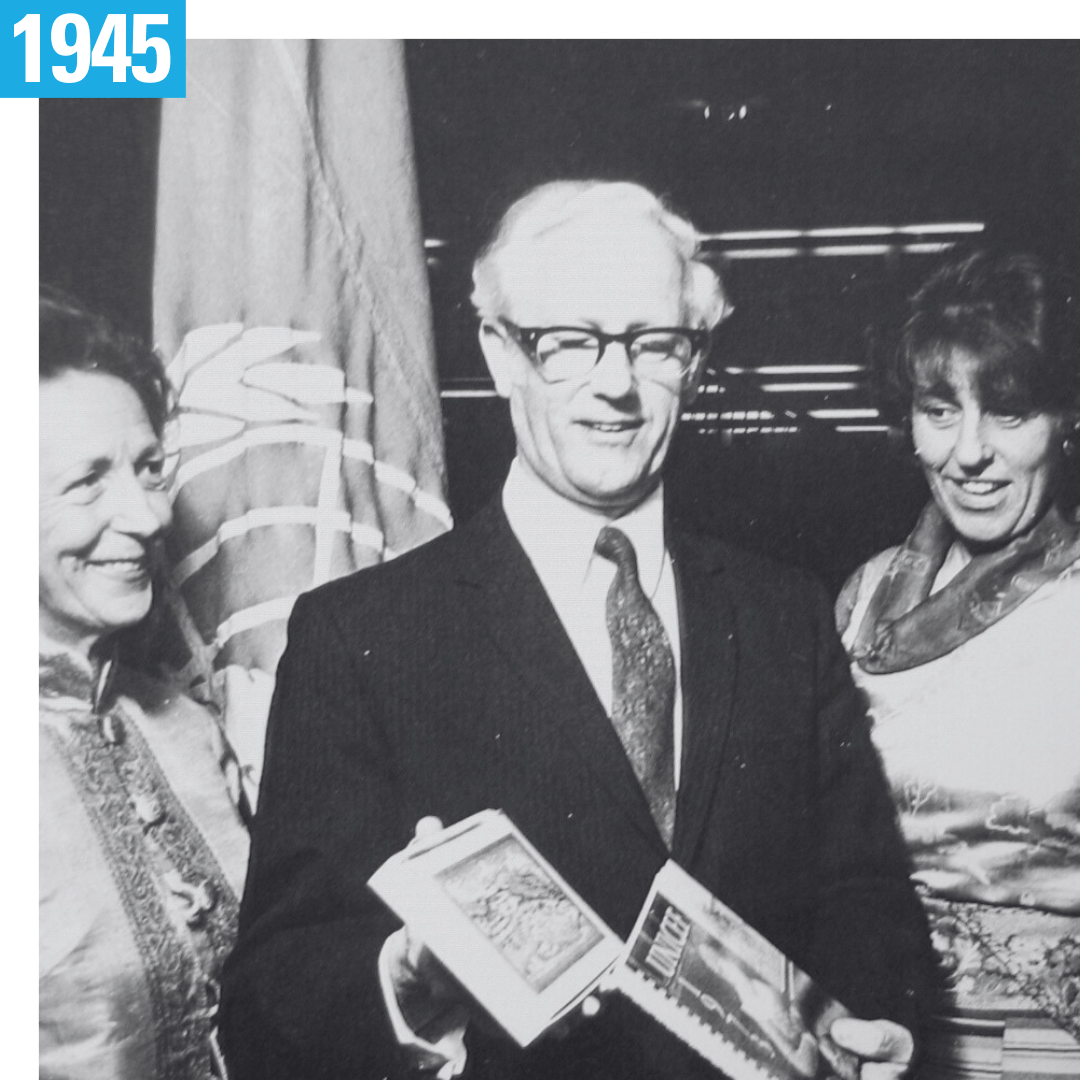
The United Nations presence in Aotearoa began with the United Nations Association of New Zealand. An organisation that promotes the goals of the United Nations by educating the public, advocating for supportive policies, engaging youth, and collaborating on global issues. One of it’s biggest contributors, longest-serving members, and president of both Wellington and Auckland branches respectively, Ian Hamilton Kilgour, was dedicated to UNICEF’s kaupapa. Twice decorated by the Queen for his services to UNICEF, Ian’s commitment to children spanned over 40-years. He was succeeded by his son after retirement in 1989.
In the devastating aftermath of World War II, millions of displaced and refugee children were in desperate need of shelter, clothing, and food. Their lives and futures were at risk. Children don't start wars, they have no power to end them, but they’re the ones who suffer most. UNICEF was created out of necessity, to help and bring hope to every child in need. Whoever they were. Wherever they lived. This idea is what drives and connects us, to go above and beyond ‘borders’, so no child is forgotten.
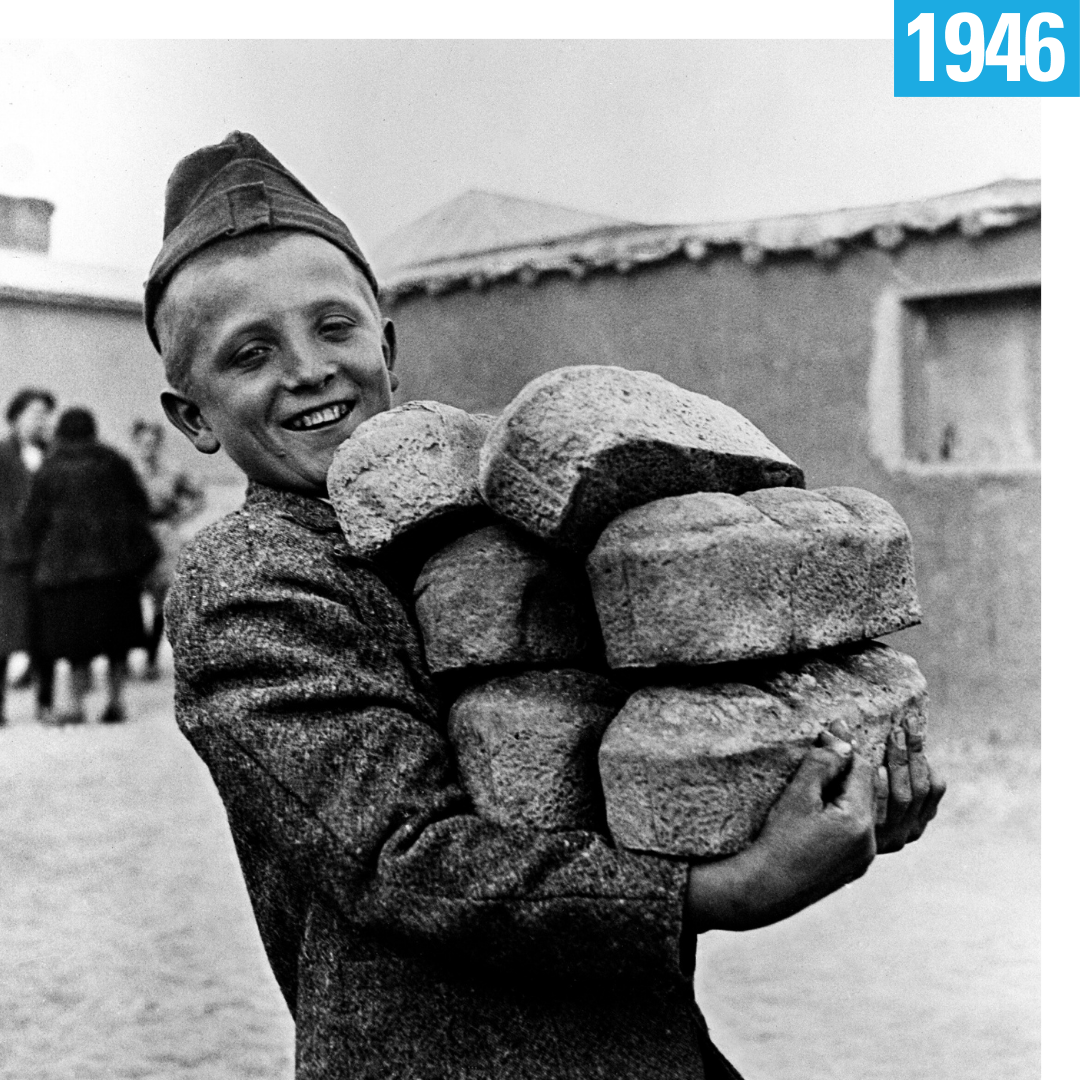
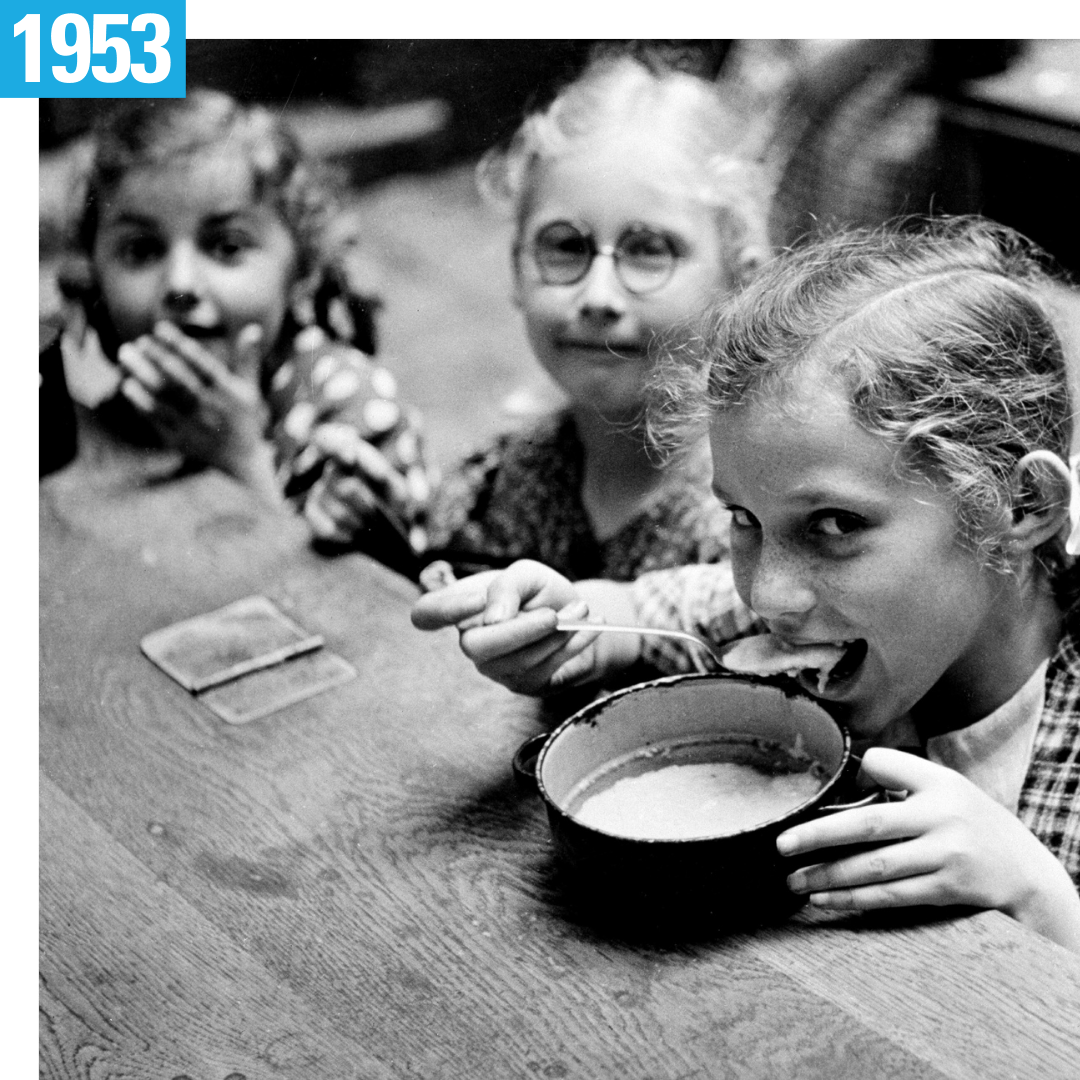
UNICEF becomes a permanent part of the UNITED Nations whānau! Our roots are based in emergency response, though with the growing and complex needs of children we needed to start focusing on the long-term benefits - and that’s exactly what we did! With a presence in almost 100 countries we were already well positioned to launch of our first water, sanitation and hygiene programmes!
Growing up in a clean and safe environment is every child’s right. Today we work in over 100 countries to make sure children’s access to water, sanitation, and hygiene is not only sustainable but innovative! One way we make clean water last is with solar-powered water systems. UNICEF currently has more than 150 solar panel fields up and running in Yemen alone, benefitting 2.5 million people.
UNICEF Aotearoa becomes a National Committee and appoints Sir Jim Belich as it’s founding president. Like Ian Hamilton Kilgour, Jim also served as president of the United Nations Association of New Zealand. He was a pillar of the Wellington community, Mayor from 1986 to 1992, and a passionate advocate for children’s rights. This year his granddaughter, the Hon. Camila Belich, spoke at our first Parliamentary Forum for Children’s Rights where young people can kōrero directly with the decision-makers of Aotearoa.
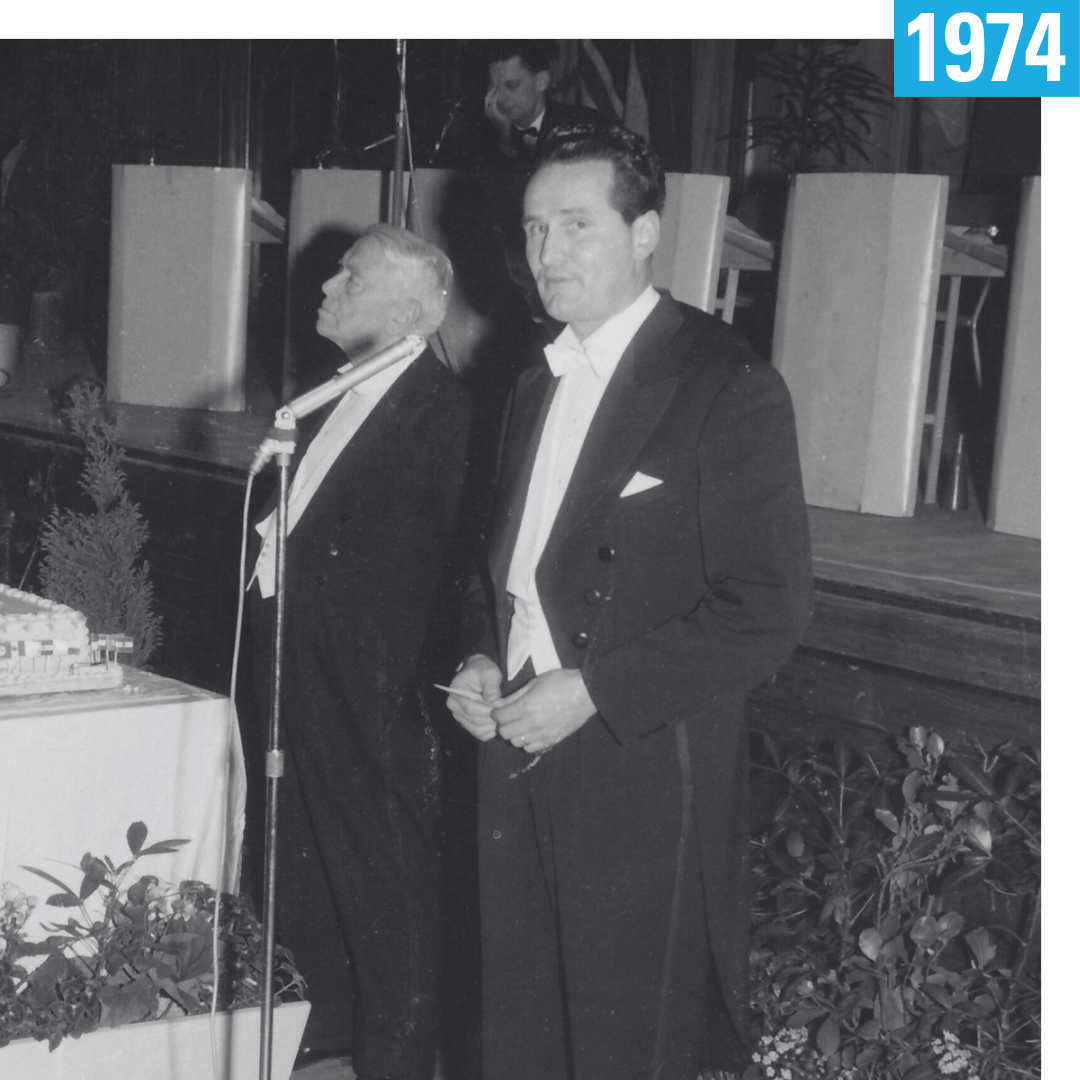
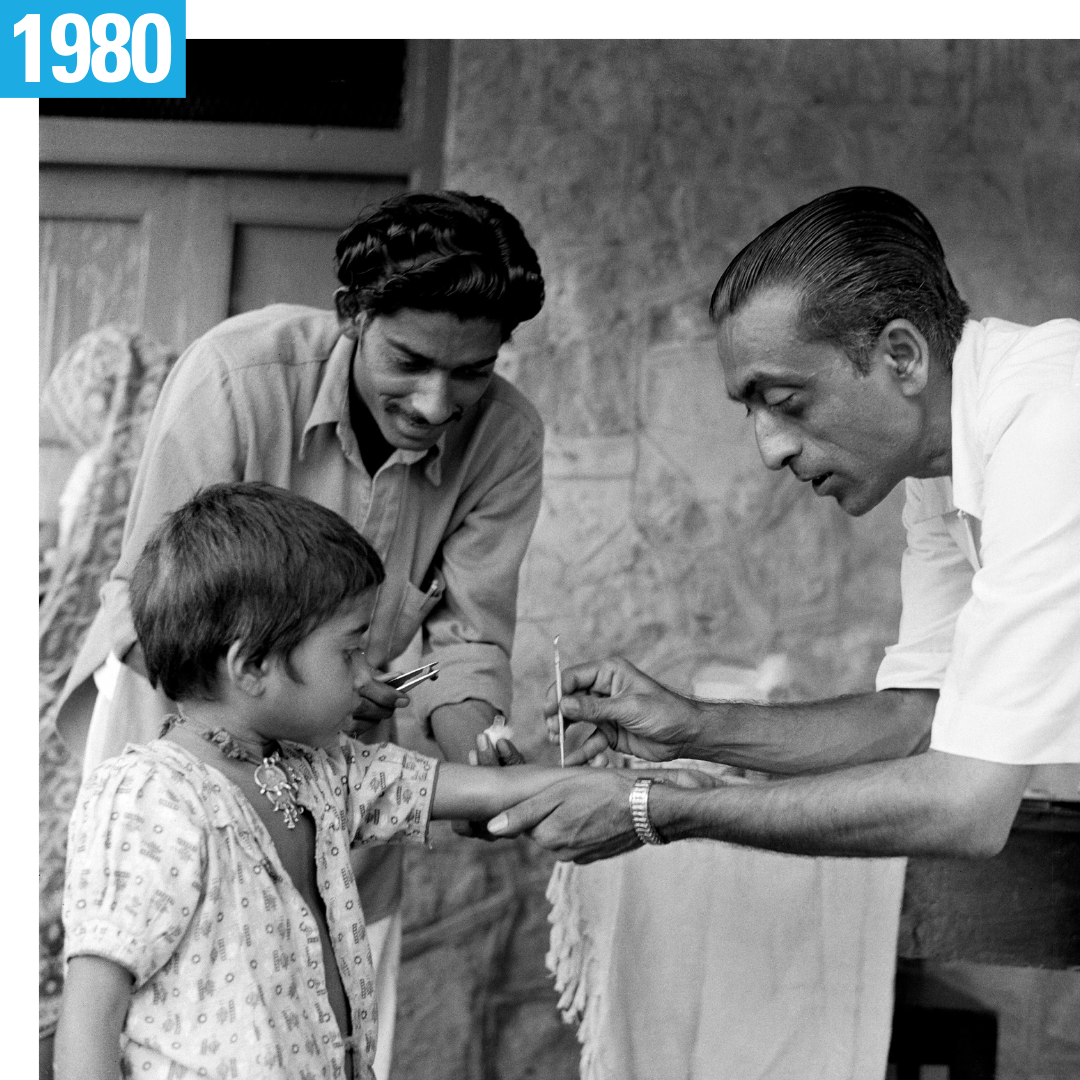
The eradication of smallpox is declared! This profound public health success was only possible by working closely with partners like the World Health Organisation. Together we delivered the first successful vaccine to ever be developed in a global rollout of immunisations and monitoring - It really does take a village! With today’s advancements in vaccines and testing, we’ll soon eradicate polio too. To help us on this mission we help vaccinate over 400 million kids against polio every year.
UNICEF is now the largest buyer of vaccines in the world. Along with our buying power, we’re currently using our scale and expertise to roll out the first-ever malaria vaccine. This is a truly revolutionary tool for saving lives, 35-years in the making. The ongoing fight against malaria will be challenging, but this vaccine is a massive leap in the right direction. In 2023 alone we delivered 6.2 million life-saving doses!
69 world leaders re-energise their commitment to children's rights! This was facilitated through a landmark Special Session Hosted by the United Nations. It was the first session devoted exclusively to kids and the first to include them as official delegates! Over 100 young people were chosen to represent and speak for other rangatahi around the world! Even today there’s an urgent need to introduce child-centred policies that prioritise the wellbeing of tamariki. The best way to do that is by platforming their voices in decision-making spaces.
As part of this Special Session, UNICEF conducted interviews with some 40,000 children in 72 countries. Children assessed their lives, families, schools, communities, and governments. The rich and complex results helped guide UNICEF programmes and inform global policies and goals developed at the Special Session on Children and after. The effects of climate, conflict, and poverty don’t discriminate - but policies can!
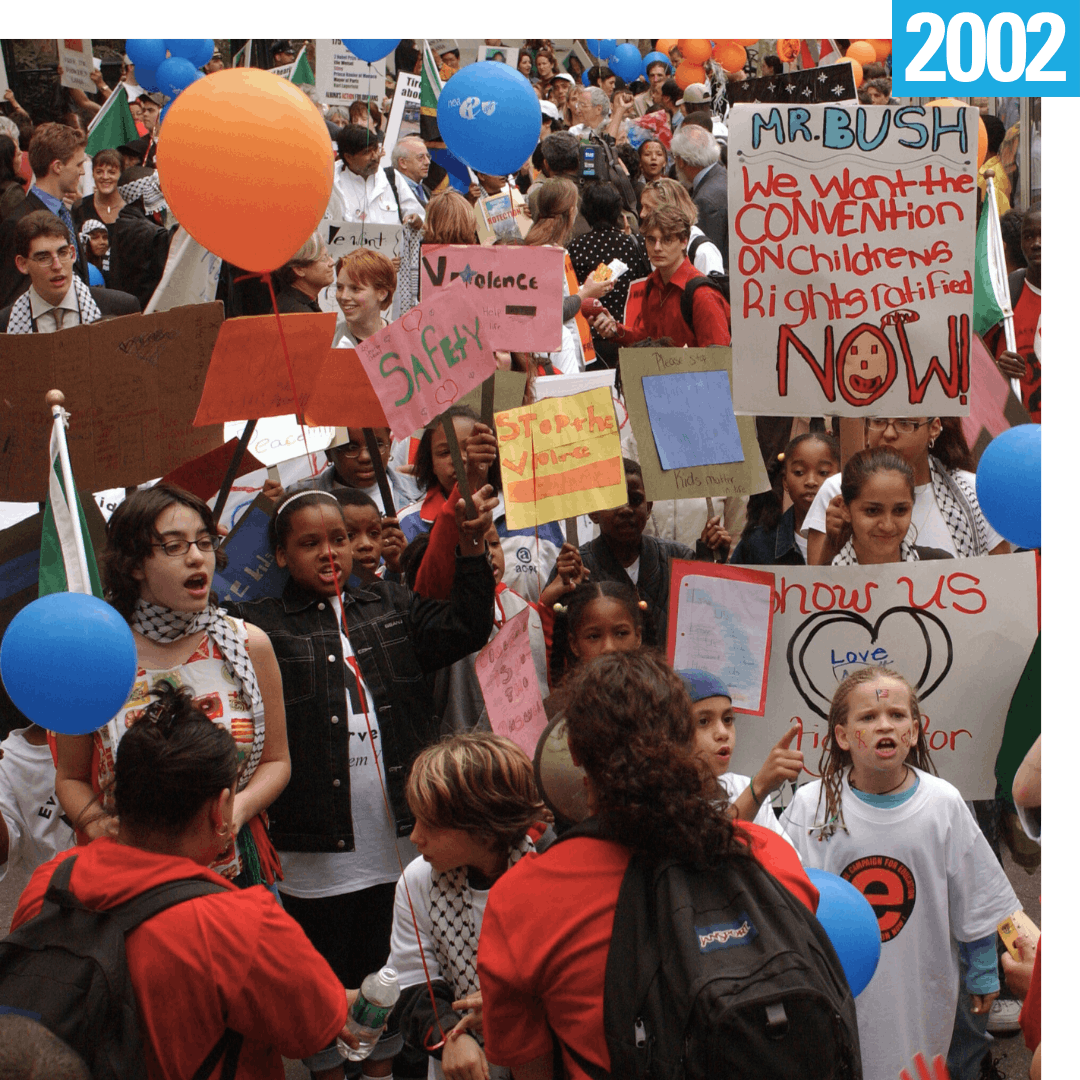
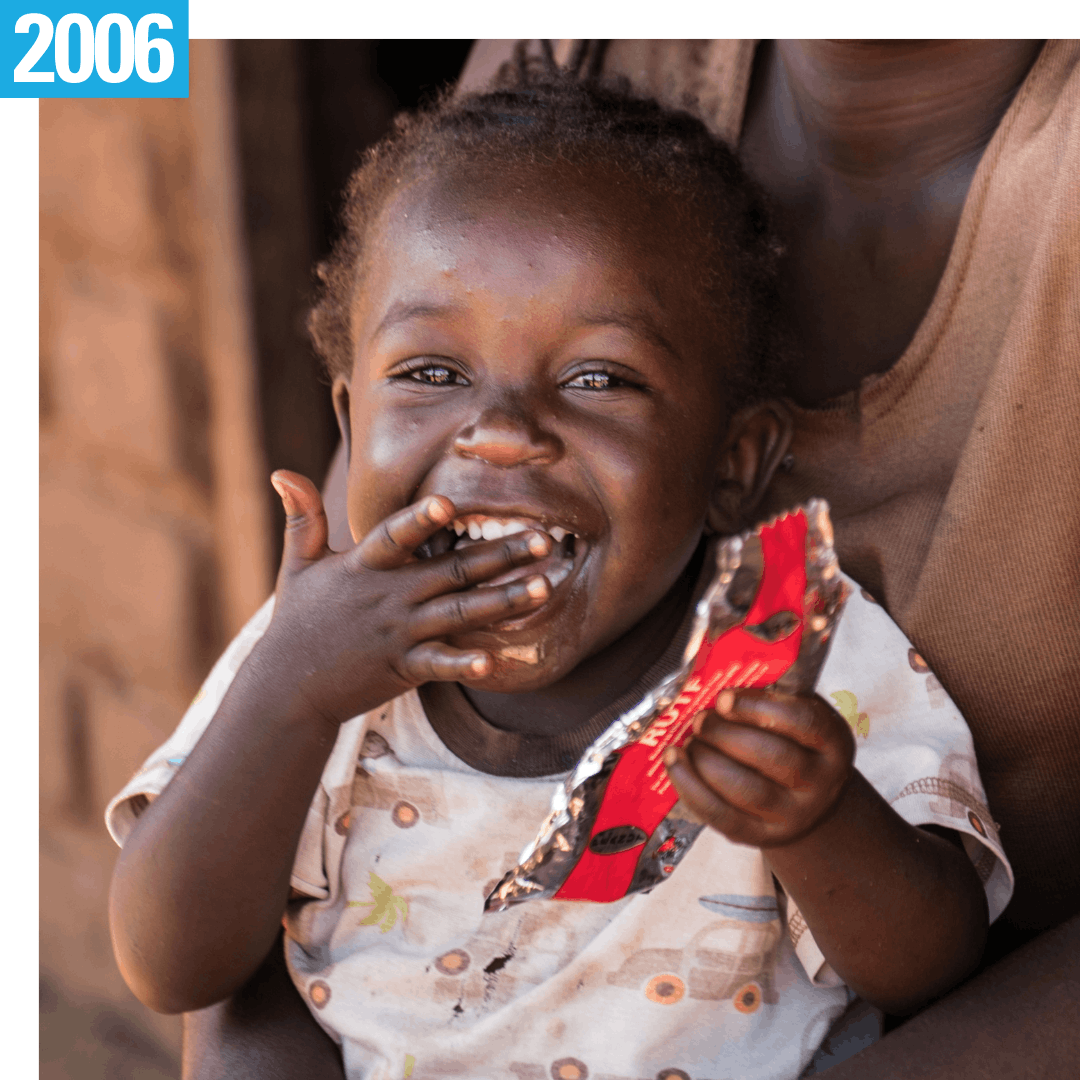
UNICEF becomes the world’s biggest purchaser of the life-saving creation; Ready-to-use therapeutic food. These small but mighty sachets are filled with an energy dense and nutrient rich peanut paste used to treat millions of kids around the world suffering from severe acute malnutrition. Nearly half of all deaths in children under 5 are because of undernutrition, which is why we invest so heavily in this incredible innovation. Today UNICEF procures 80 percent of the world's therapeutic food!
In 2023, UNICEF and our partners reached 9.3 million kids with life-saving treatment for the most severe form of malnutrition; wasting. These record breaking numbers are helping turn the tide against the global malnutrition crisis!
UNICEF hosts the first Forum of the Global Partnership on Children with Disabilities - to tautoko (support / advocate) some of the world’s most stigmatised and excluded tamariki. Several young people with disabilities were among the speakers sharing their unique perspectives and experiences. This helped us drive more meaningful and inclusive action. Children with disabilities often work hard to accommodate themselves to an inaccessible world that excludes them. By bringing children with disabilities to the forefront of development, we can continue to build a world that works for all kids!
Using social and behavioural change interventions, 107 countries addressed barriers faced by children with disabilities and their families in 2023. We can always aim higher! By 2030 we want the world to be a place where all children, including those with disabilities, live in barrier-free and inclusive communities. Including children with disabilities in all aspects of life must be a priority for all of us if we’re going to get there!
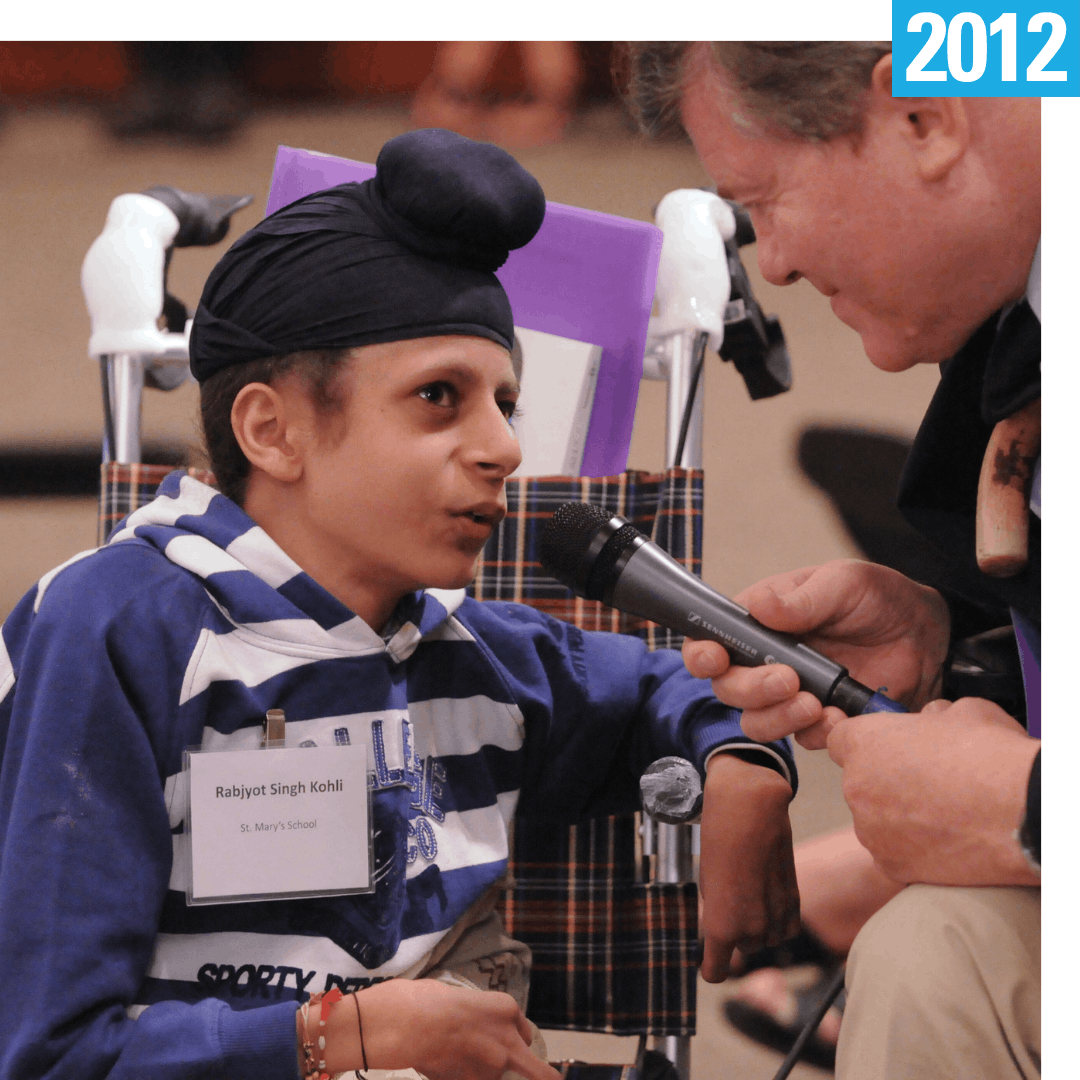
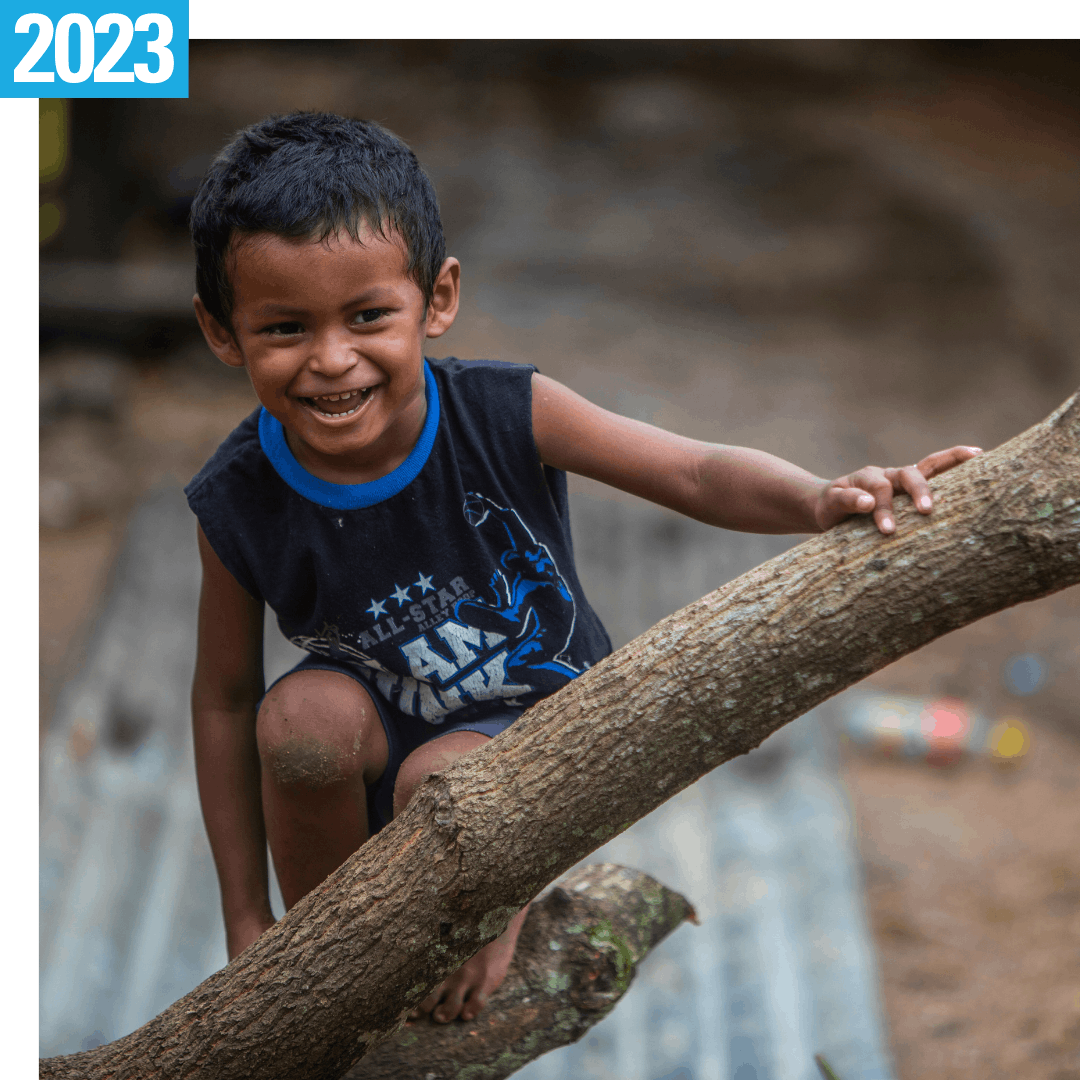
UNICEF launches the world's first climate-change financing solution - protecting more than 13.5 million children and families! The Today Tomorrow Fund is not just adapting our programmes to climate change - it’s also changing how they’re funded. For the first time ever, we’re insuring kids against the impact of a severe weather event. This revolutionary fund is helping us provide faster availability of funds, speed up our disaster response, and be there when kids need us most.
Climate change is increasing the frequency and intensity of extreme weather events. That’s why we’re constantly pushing further to innovate and adapt - to overcome future challenges and protect kids from the unfolding climate crisis!
In every aspect of our work it’s generous donations that have helped us stay ahead. With every milestone we grow and learn, building towards a brighter future for kids. And donors have been there every step of the way. We're 100% donor funded, making you the crucial starting point in our journey to reach kids with water, nutrition, health care, vaccines, education and protection – anywhere in the world. With your support we’ll keep planning, implementing, and breaking new ground for tamariki everywhere!
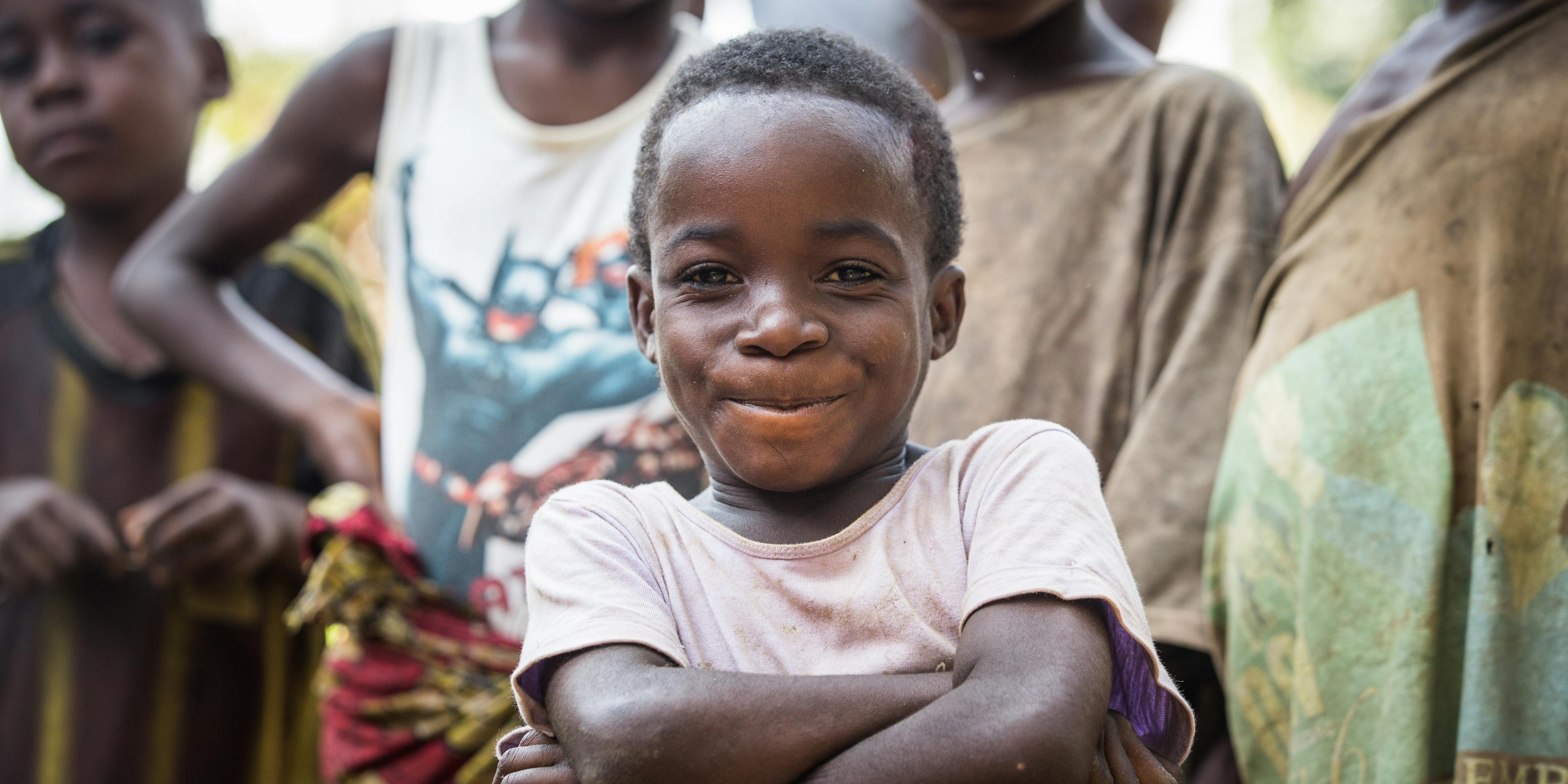
UNI212616